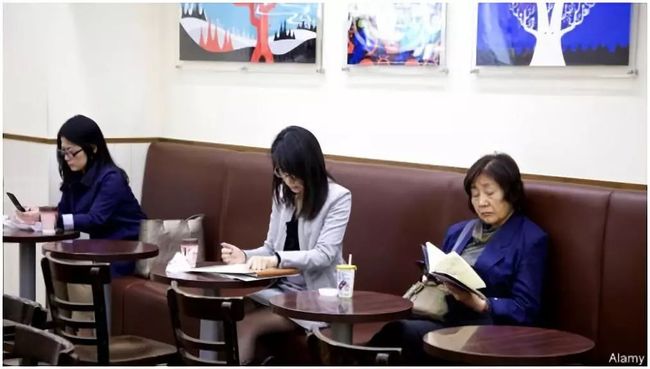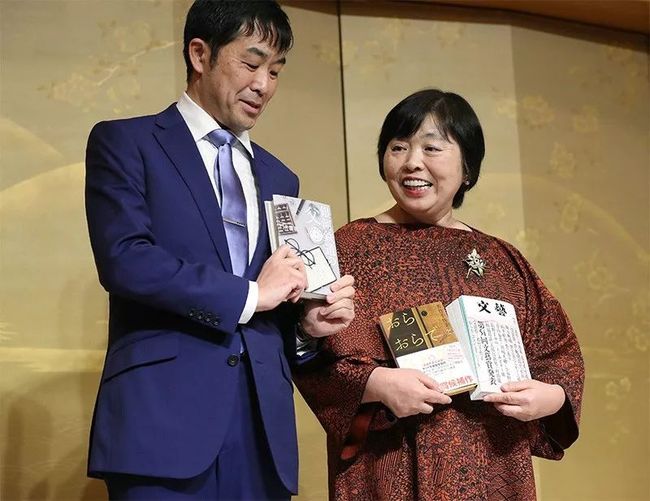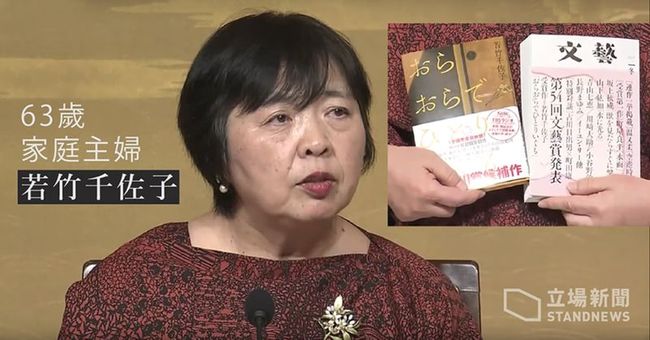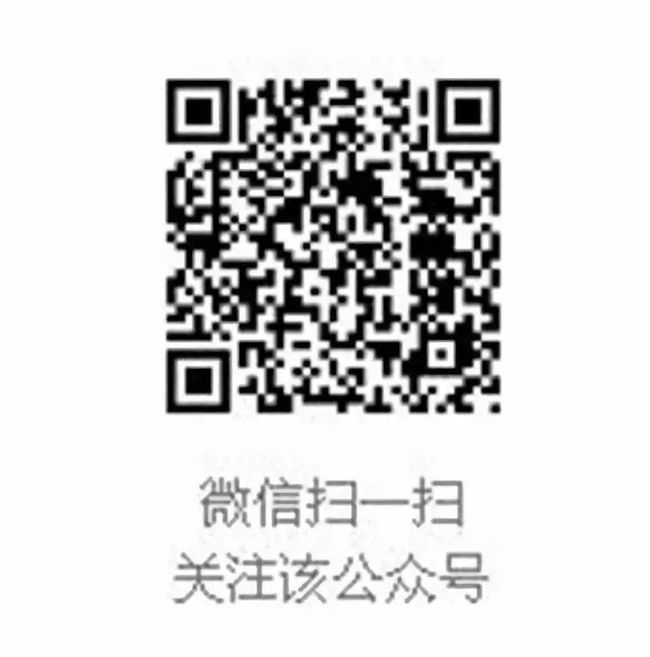Fifty shades of grey
五十度灰
In Japan, there is a boom in books by and for the elderly
在日本,老年作者写的和老年群体读的书籍越来越多。
As the market ages, so do the authors and themes
随着市场的发展,作者和文学作品的主题也在变化
LITERATURE REFLECTS life. So in ageing Japan there is a raft of smash-hit books by aged authors. “Age 90: what’s so great about it?” is a humorous essay on the difficulties of the elderly, by Aiko Sato, who is 95 and wrote it with a pen. It sold 1m copies in 2017, making it Japan’s bestselling book that year. In 2018 the Akutagawa literary prize went to Chisako Wakatake, 63 at the time, for her debut novel “Live by Myself” with its 74-year-old protagonist, Momoko.
文学反映生活。因此,在日趋老龄化的日本,老年作家们的畅销书是层出不穷。现年95岁的佐藤爱子(Aiko Sato)用一只钢笔写了一部关于老年人陷入困境的幽默书籍:《90岁:这没什么大不了?》。该书在2017年售出100万册,成为当年日本国内的畅销书。2018年,63岁的若竹千佐子(Chisako Wakatake)荣获日本芥川文学奖。在她的处女作《我将独自前行》一书中,74岁的桃子(Momoko)为女主人公。
The books talk about how to live in old age, and it is not all doom and gloom. The widowed Momoko, for example, learns to live on her own. “The Finished Person” by Makiko Uchidate, who is 70, opens with the line “retirement is a living funeral” before going on to depict the adventures of a retired salaryman, including falling for a younger woman and returning to his home town. “Going to Die Soon”, also by Ms Uchidate, features 78-year-old Hana, a vibrant former alcohol-shop owner trying to make the most of her remaining years. The novel has been called a book for shukatsu, or preparing for death, making readers think more deeply about what it means to age.
书中讲述了如何度过老年生活,这并不都是厄运和悲观。例如,寡居的桃子学会了独立生活。70岁的内馆牧子(Makiko Uchidate)在《结束了的人》(The Finished Person)一书中以“退休是一场活生生的葬礼”为主线,描述了一位退休工薪人士爱恋上一名年轻女人并返回家乡等冒险故事。同样由内馆牧子所写《即将离世》,以78岁的Hana为女主人公。该女主人公是一位充满活力的前酒店老板,试图充分利用她的余生岁月。这部小说被称为是一本“为死亡做准备”的书籍,使读者更深入地去思考年龄意味着什么。
Japan’s population has the world’s highest proportion of over-65s, at 28%. People are living longer and staying healthier, so many have at least 20-30 years of retirement, for much of which they are sprightly. And although the Japanese have been spending less on books, that is least true for the over-60s. Lawson, a convenience-store chain, recently decided to stock books with the older generation in mind.
日本65岁以上的老人占总人口的比例为28%,居世界最高水平。老年人的寿命更长,身体更健康,因此许多人至少有20-30年的退休生活,其中大部分时间他们都是精力充沛的。尽管日本人在书籍上的花费越来越少,但对于60多岁的人来说,这却是完全不同的情况。近来,劳森(Lawson)便利连锁店决定库存一些关于这些老年人的书籍。
日本六旬主妇若竹千佐子获得日本表扬新晋作家的“芥川龙之介奖”文学奖,关于创作她说:方言是对自己忠实的语言。
But the wrinkly writers’ books are attracting younger readers, too, according to the Research Institute for Publications (RIP), a body in Tokyo. Some are preparing for their own old age or want to understand the increasing number of old people they see around them. Others find relevance in the themes explored, such as loneliness, a problem that stretches well beyond the silver-haired. In Hiroyuki Itsuki’s blockbuster self-help book, “Recommendation for Solitude”, the 86-year-old author promotes reminiscing about “the good old days”.
但据东京出版物解析研究所(Research Institute for Publications)的消息,这些老年人的作品也在吸引更年轻的读者。有些读者正在为自己的晚年做准备,或者想了解他们周围越来越多的老人。另一些读者在所探索的孤独等主题中寻找一些相关性,一个远远超出年龄的问题。86岁的作者五木宽之(Hiroyuki Itsuki)在其畅销的励志书《孤独的建议》中提倡回忆“美好的过去”。
The most notable feature of the new genre is that the vast majority of authors, and main characters, are women. Especially popular, says the RIP, are the ara-hun (“around-hundred” years-old) writers like Ms Sato, whose book, readers say, helps them be more positive. It is not just that women have a longer life expectancy. Their popularity, reckons the institute, also reflects support for strong women who are passionate about their work, a phenomenon that is all too rare in Japan today.
这些新文学体裁最显著的特点是,绝大多数作家和主人公都是女性。东京出版物解析研究所方面表示,像佐藤爱子这样近百岁的作家尤其受到欢迎,而读者声称她的书籍帮助他们变得更加积极。这不仅仅是女性的预期寿命更长。该研究所还认为,她们的受欢迎程度也反映了读者对工作充满热情的强势女性的支持,这种现象在今天的日本是非常罕见的。




